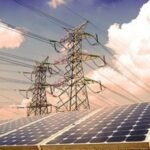Decentralized energy is emerging as a transformative force in the global energy landscape, reshaping how we generate, distribute, and consume power. This comprehensive exploration delves into the significance of decentralized energy, its underlying principles, diverse technologies, applications, and its profound impact on energy resilience, environmental sustainability, and community empowerment. By understanding the critical role of decentralized energy, individuals, communities, and policymakers can collaboratively work towards building a more sustainable and resilient energy future.
The Significance of Decentralized Energy
Decentralized energy departs from traditional, centralized energy systems by empowering local communities to produce and manage energy. This shift significantly enhances energy resilience, reduces environmental impact, and fosters community engagement in transitioning to a more sustainable energy paradigm.
Understanding Decentralized Energy
Decentralized energy refers to generating power closer to the point of use, often within or near the community that consumes it. This approach contrasts with centralized energy systems where power is generated at a distant facility and transmitted over long distances, incurring transmission losses and potential vulnerabilities.
Key Principles of Decentralized Energy
Decentralized energy operates on key principles such as local generation, diversified energy sources, and community involvement. By harnessing local resources and involving community members in decision-making, decentralized energy promotes sustainability, self-sufficiency, and a more resilient energy infrastructure.
Diverse Technologies in Decentralized Energy
Various technologies contribute to decentralized energy, each tailored to a region’s unique characteristics and resources. These technologies include solar photovoltaic (PV) systems, wind turbines, small-scale hydropower, combined heat and power (CHP) systems, and emerging technologies like microgrids and blockchain-based energy systems.
Solar Photovoltaic (PV) Systems
Solar PV systems, converting sunlight into electricity, are a cornerstone of decentralized energy. Their scalability and modularity make them suitable for residential rooftops, community solar projects, and larger installations. Solar PV systems empower communities to harness abundant sunlight for local energy production.
Wind Turbines
Wind turbines, harnessing the wind’s kinetic energy, provide another decentralized energy solution. From small-scale turbines for individual homes to community-owned wind farms, decentralized wind energy contributes to local power generation while minimizing reliance on centralized grids.
Small-Scale Hydropower
Small-scale hydropower systems leverage the energy from flowing water to generate electricity. These systems, often deployed in rivers or streams, offer decentralized energy solutions for communities near water resources, providing a reliable and renewable power source.
Combined Heat and Power (CHP) Systems
CHP systems, known as cogeneration, produce electricity and useful heat from a single energy source. Widely applicable to residential, commercial, and industrial settings, CHP systems enhance energy efficiency and contribute to decentralized energy solutions.
Microgrids
Microgrids are localized energy systems that can operate independently or in conjunction with the main power grid. These decentralized networks allow communities to generate, store, and distribute their energy, promoting resilience and reliability, particularly in areas prone to grid disruptions.
Blockchain-Based Energy Systems
Emerging technologies like blockchain are being explored for decentralized energy systems. Blockchain enables transparent, secure, and peer-to-peer energy transactions, empowering individuals to buy and sell excess energy directly within their communities.
Applications of Decentralized Energy
Decentralized energy finds diverse applications across residential, commercial, and industrial sectors, contributing to energy security, cost savings, and environmental sustainability.
Residential Sector
In the residential sector, decentralized energy solutions empower homeowners to install solar panels and small wind turbines or adopt CHP systems. It reduces dependence on centralized grids and allows residents to generate their electricity, leading to energy cost savings and environmental benefits.
Commercial Sector
Decentralized energy is making significant inroads in the commercial sector, where businesses can install on-site renewable energy systems to meet their power needs. This approach enhances energy resilience, reduces operating costs, and aligns with corporate sustainability goals.
Industrial Sector
Industries can benefit from decentralized energy by incorporating on-site power generation technologies. It not only ensures a reliable power supply but also enhances energy efficiency and reduces the environmental footprint of industrial operations.
Community-Based Projects
Community-based decentralized energy projects, such as community solar installations or shared wind farms, foster collaboration among residents. These projects empower communities to invest collectively and benefit from local energy generation, promoting a sense of ownership and shared responsibility.
Challenges in Decentralized Energy Implementation
While decentralized energy holds immense promise, it faces challenges that require attention for widespread adoption and optimal effectiveness.
Initial Investment Costs
One primary challenge is the initial investment costs associated with implementing decentralized energy solutions. While the costs of renewable technologies have been decreasing, overcoming the upfront expenses remains a barrier for some communities and individuals.
Grid Integration and Regulatory Frameworks
Integrating decentralized energy into existing grids poses challenges related to regulatory frameworks and grid management. Streamlining regulatory processes and updating grid infrastructure is crucial for a seamless integration that maximizes the benefits of decentralized energy.
Technological Limitations and Standardization
Technological limitations, such as the intermittency of renewable sources, energy storage capacity, and standardization of technologies, require ongoing research and development. Standardizing decentralized energy solutions ensures interoperability and a smoother transition to decentralized systems.
Future Trends in Decentralized Energy
The future of decentralized energy is marked by emerging trends that promise to overcome current challenges and further enhance its capabilities.
Advanced Energy Storage Solutions
Advancements in energy storage technologies, including batteries and other storage mediums, play a pivotal role in the future of decentralized energy. Efficient storage solutions address the intermittency of renewable sources and ensure a reliable power supply.
Digitalization and Smart Technologies
The digitalization of energy systems, coupled with smart technologies, enhances the efficiency and effectiveness of decentralized energy. Smart grids, IoT-enabled devices, and real-time monitoring contribute to optimized energy production, consumption, and distribution.
Electrification of Transportation
The electrification of transportation, including electric vehicles (EVs), creates new opportunities for decentralized energy. EVs can act as mobile energy storage units, contributing to grid stability and enabling bidirectional energy flows within communities.
Policy Support and Incentives
Continued policy support and incentives are essential for the growth of decentralized energy. Governments and regulatory bodies can play a crucial role in fostering an environment conducive to the widespread adoption of decentralized energy solutions.
Conclusion
Decentralized energy stands as a transformative force in reshaping our energy landscape. Its significance in enhancing energy resilience, reducing environmental impact, and empowering communities cannot be overstated. By embracing diverse technologies, fostering community involvement, and addressing challenges through ongoing innovation, decentralized energy paves the way for a more sustainable, resilient, and community-driven energy future.
As individuals, communities, and nations collaborate to adopt decentralized energy solutions, they contribute to a cleaner and more sustainable environment and lay the foundation for a future where energy is harnessed, managed, and shared at the local level for the benefit of all.











